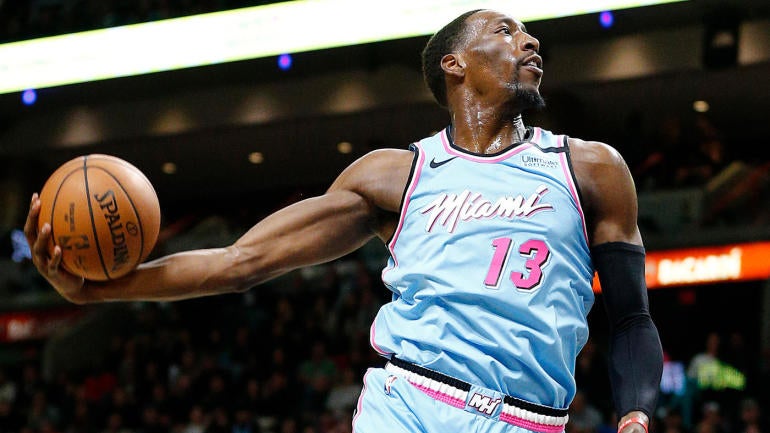
There are always more deserving All-Star candidates than there are spots for them, but that's never been more true than this season. The NBA announced the reserves on Tuesday, and there's a decent chance you're outraged about one "snub" or another.
If you missed it, the coaches voted Damian Lillard, Chris Paul, Paul George, Anthony Davis, Rudy Gobert, Donovan Mitchell and Zion Williamson as Western Conference reserves. In the East, coaches voted for James Harden, Jaylen Brown, Jayson Tatum, Julius Randle, Nikola Vucevic, Zach LaVine and Ben Simmons.
On March 4, Kevin Durant and LeBron James will draft their teams. On March 7, the game will be played, and, unless they're selected as injury replacements, the following players won't be on the court:
Most coaches weren't going to pick two Suns, and it looks like Booker was the victim of Paul's success. His assist rate has understandably dipped now that Paul is around, but he has actually increased his usage rate to 30.3 percent and continued his extremely efficient scoring. This might be a tough pill for Booker to swallow, but hey, as long as his team stays healthy, he'll get his first taste of the playoffs in a few months. That's the other side of this.
Update: Booker was named as an injury replacement for Lakers forward Anthony Davis on the Western Conference's roster on Wednesday, Feb. 24.
It's genuinely surprising that the coaches didn't select him, given that he's universally respected and his team has the best record in the league. Conley, a 14-year vet who barely missed the cut a couple of times in Memphis, is the sentimental pick to take Davis' spot. He also has a rock-solid statistical case: Per 36 minutes, he's averaging 20.2 points, 4.2 rebounds and 6.9 assists on 59.4 percent true shooting. Conley is launching 3s at a higher volume and more accurately than ever before and playing better defense than some of the players selected over him. The Jazz have outscored opponents by 17.1 points per 100 possessions with him on the court, which is the top mark in the entire league.
Middleton made the cut in 2019 and 2020 but missed it this time because his team hasn't been quite as dominant (and the East has a zillion deserving candidates). Individually, though, he's been significantly better this season, so this feels a little weird. Milwaukee has empowered Middleton as a playmaker, and he has averaged a career-high 6.2 assists per 36 minutes. His .505/.431/.895 shooting splits are insane.
Another player who has taken a step forward after an All-Star season, Adebayo has added the mid-range jumper to his arsenal, increased his usage and continued to grow into one of the NBA's premier bigs. Per 36 minutes, he's averaging 19.6 points, plus 9.5 rebounds, 5.5 assists, 0.9 steals and 1.0 blocks on 63.6 percent true shooting. It's not his fault whatsoever that the Heat are 14-17, but the disappointing record is probably what cost him a second appearance.
From an undrafted benchwarmer to a crucial part of the best bench unit in the league to NBA Finals hero to full-time starter to this, the evolution has continued. VanVleet will have to wait to validate his latest leap with an All-Star appearance, but he is clearly playing at an All-Star level. He was a bright spot when the Raptors were struggling, and he's been driving much of their success as they've turned things around, most notably with his 54-point game against Orlando and in recent wins against the Sixers and Bucks without Kyle Lowry. In February he has averaged 21.4 points, 4.1 rebounds, 6.6 assists and 1.6 steals per 36 minutes on 59.8 percent true shooting, but the late push wasn't enough.
No longer part of a three-headed PG monster, Gilgeous-Alexander has emerged as the Thunder's clear-cut No. 1 option. This was a predictable storyline, but the same can't be said for the scope of his development. Generally, when a young player's usage rate makes a significant jump, merely maintaining his efficiency is considered a success. This 22-year-old has done much more than that. He's averaging 24.2 points, 5.5 rebounds and 6.9 assists on 62 percent (!) true shooting. Coaches likely held OKC's 12-19 record against him.
Fox has been one of the best clutch players in the league, and if this voting were conducted before the Kings' seven-game losing streak, I bet he'd have made it. On the season he's averaging 24.1 points, 3.5 rebounds, 7.7 assists and 1.4 steals per 36 minutes, but these numbers undersell how much he's improved as a pick-and-roll operator. Fox is confidently taking pull-up 3s and stepback 3s, and his 41.9-percent mark on catch-and-shoot 3s suggests he'll be able to make those shots at a reliable rate in the relatively near future. He's also making 72 percent of his shots at the rim, which shouldn't be possible.
Strictly looking at the numbers, it's difficult to rationalize keeping Young off the team. The guy is averaging 27.9 points, 4.1 rebounds and 9.9 assists per 36 minutes on 60.8 percent true shooting, and opponents can't keep him off the free-throw line. The Hawks have had an uneven season, though, and Young hasn't meaningfully improved his defense or his off-the-ball game.
Sabonis and the Pacers started the season strong, but his case lost some steam when the team did. Like Middleton and Adebayo, though, he's unquestionably better now than he was when he made the All-Star Game last season. He's averaging 21.3 points, 11.5 rebounds, and 5.7 assists per 36 minutes on 59.5 percent true shooting, with a career-high 25.4 usage rate. Everything Indiana does revolves around him.
Hayward's per-36 numbers (22.5 points, 5.6 rebounds, 3.8 assists, 1.2 steals) are almost identical to what they were in his final season in Utah. His 60 percent true shooting percentage is a few percentage points higher. Hayward has been everything the Hornets hoped he would be, providing precisely the right amount of scoring and playmaking to relieve the pressure on their guards without getting in their way. Unfortunately for him, those numbers don't jump off the page in the same way that, say, LaVine's do.
Should coaches be rewarding the best players or the players who are having the best seasons? If you lean toward the former or believe it should be a mix of the two, you probably think Butler was robbed. He proved he was among the league's top tier in the bubble, and his stats through 19 games — 20.9 points, 8.3 rebounds, 8.3 assists and 2.0 steals per 36 minutes on 55 percent true shooting — aren't all that different from his stats last season. Butler started slowly, though, and his 12 missed games likely worked against him. Miami's record probably did, too.
DeRozan's drive-and-kick game has been an essential part of the Spurs' new offense, and he's averaging a career-high 7.4 assists per 36 minutes. He's still an unbelievable midrange shooter, but he has cut down on the frequency of his long 2s and made a career-high 57 percent of them, per Cleaning The Glass. He isn't completely shunning the 3-point line anymore, either. San Antonio hasn't been a big enough story for DeRozan to generate much All-Star buzz, though, and his diminished points per game (19.8) is probably a factor, too. When you consider how he has been discussed throughout his career, this is some rich irony.
For the second time, Harris is having a career year under Doc Rivers, averaging 21.4 points, 8.1 rebounds, 3.5 assists, 0.8 steals and 0.9 blocks per 36 minutes on 60.7 percent true shooting. A personification of the Sixers' vastly improved offensive ecosystem, Harris' shot profile doesn't look all that different, but he's much more comfortable as a scorer than he was last season. As Conley found out, though, it's difficult to get in when you're teammates with two perennial All-Stars.
Honorable mentions: Jerami Grant, Brandon Ingram, Christian Wood, Ja Morant, CJ McCollum
https://ift.tt/2NTvB9g
Sport
Bagikan Berita Ini
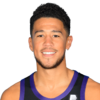

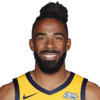



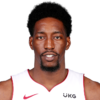

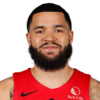

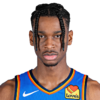

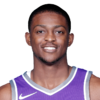

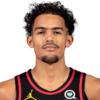





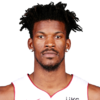
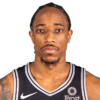

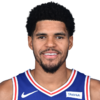















0 Response to "2021 NBA All-Star Game snubs: Bam Adebayo, Mike Conley, Trae Young not named as reserves - CBS Sports"
Post a Comment